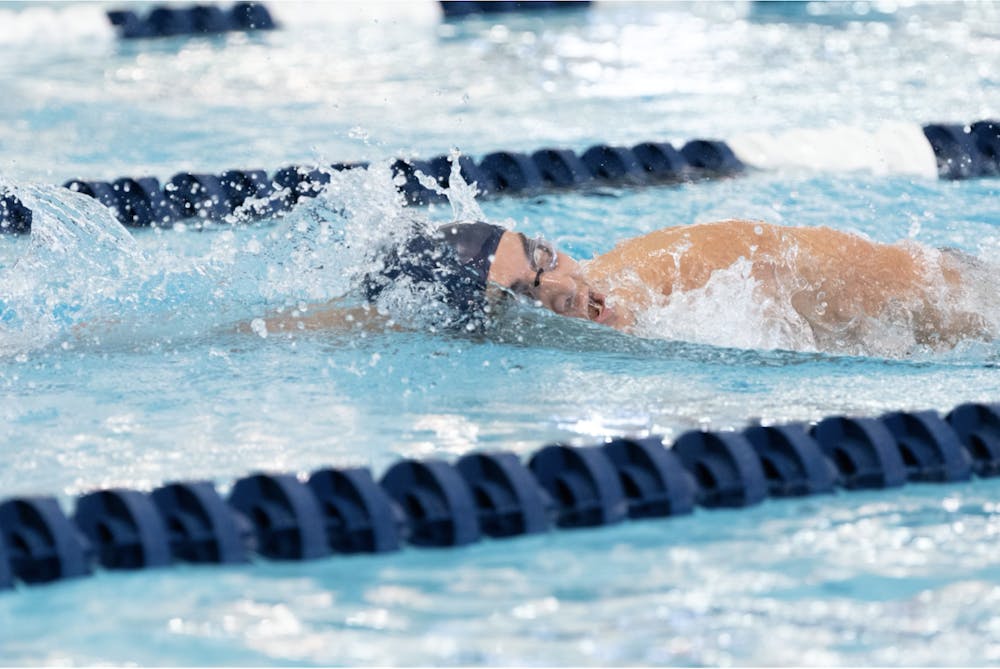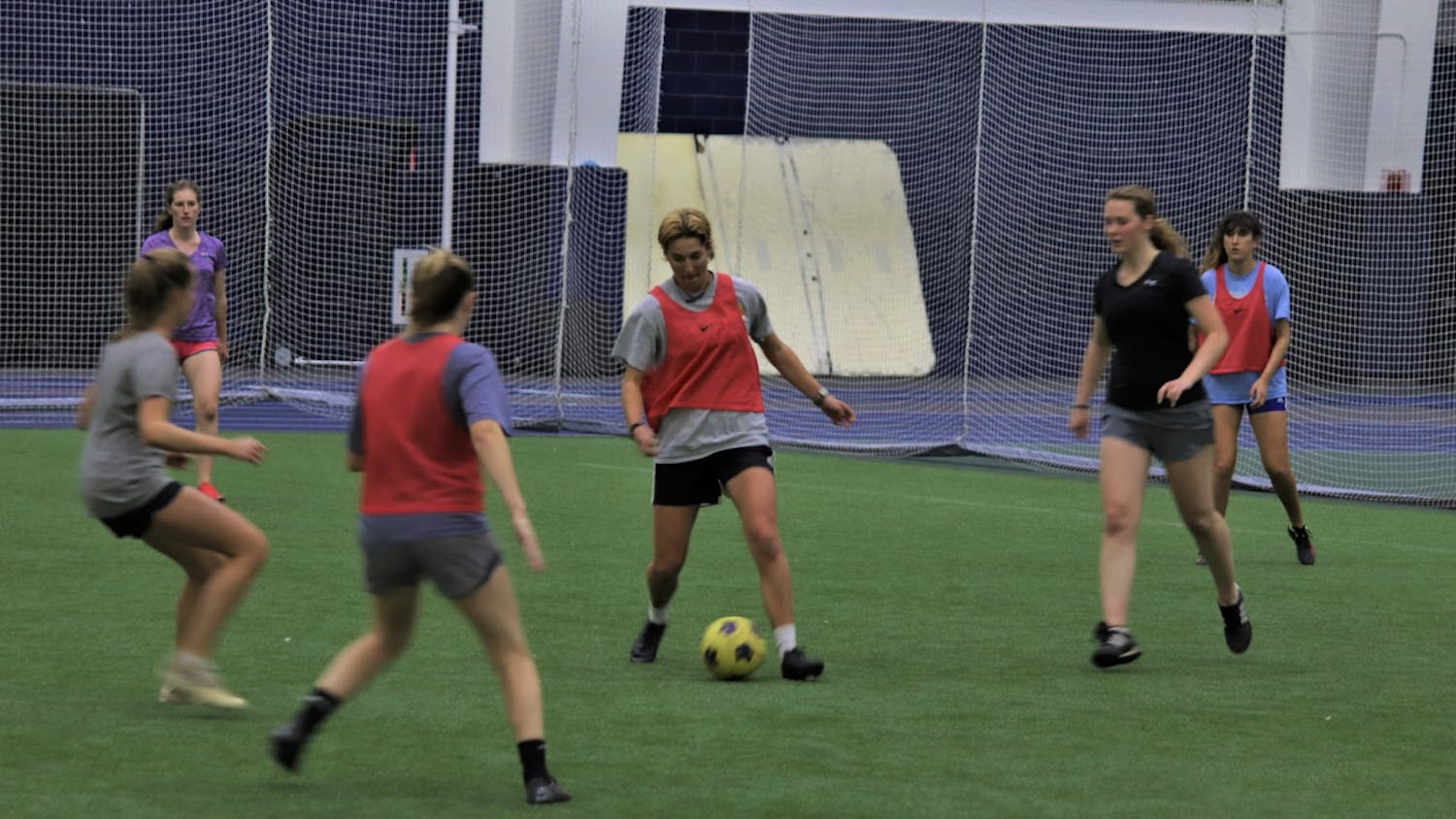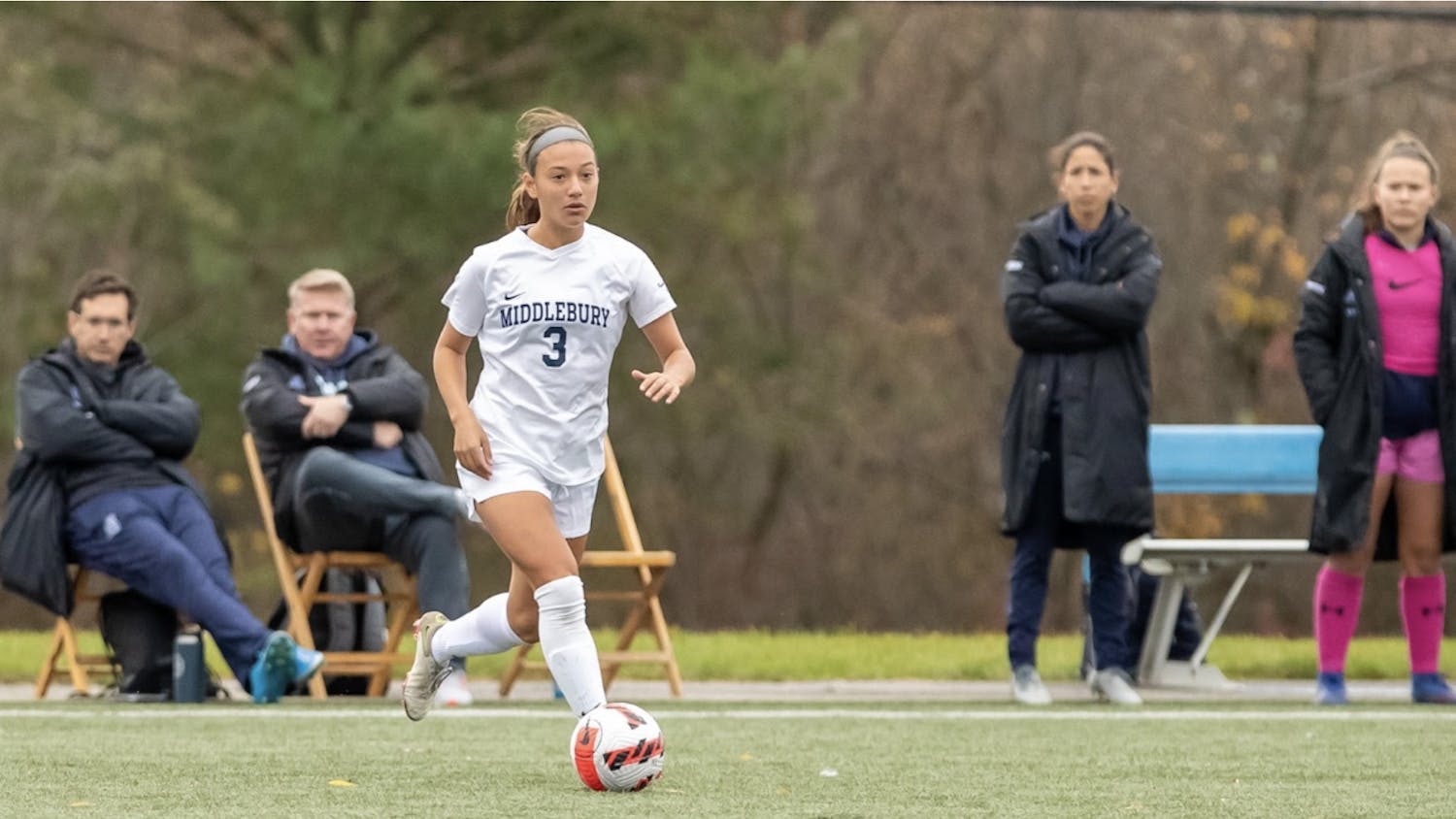David Porges ’25, from New York, NY, is competing in his second year on the men’s swim and dive team as a distance swimmer. In this installment of Seven Questions, Porges discusses his journey to swimming at Middlebury, his role in the SGA and his hopes for the future of the team.
Owen Park: How did you first become involved in swimming?
David Porges: Swimming has always been a big part of my home life. My dad was a swimmer for Franklin and Marshall College, and my older brother is currently swimming at Princeton University. Some of the earliest memories I have are of peewee league swim meets — the sport has really been with me for as long as I can remember. In high school, my career was a little off-and-on because I was exploring some of my other interests, but I recommitted to training at the start of my sophomore year.
OP: What was the moment that you decided to pursue a collegiate swimming career?
DP: Meeting Coach Bob Rueppel — my dad introduced me. They became friends entirely by chance while he was visiting the area around Franklin and Marshall. My dad was visiting the campus and asked who the new men’s swimming head coach was, and it just so happened to be Coach Rueppel. I didn’t learn about this until my dad said he was going to catch up with a friend at Middlebury and that I should check out the school — with no expectations of this meeting impacting my prospects of coming here. I was fortunate enough to meet him, and when I spoke to him, he really demonstrated the values that I wanted to see in swimming: a community built around hard work and passion for the sport. I also met a lot of swimmers during my visit, and learning about what their lives were like at Middlebury made me strongly attached to the college and the thought of swimming here one day. From that moment on, I was focused on doing everything I could to get here.
OP: You mentioned that Coach Rueppel giving you a chance convinced you to try to swim in college. Were you strongly considering swimming beforehand?
DP: Not at all. I used to joke that my brother was the swimmer of the family. For the better part of the application process, I wasn’t considering swimming at the collegiate level. I was working on my high school’s paper and was more focused on exploring my interest in humanities. It was only when I started to look at different collegiate swimming programs that I realized that D3 programs would allow me to have a balance of athletics and academics in my life. I could be someone else outside of the pool while continuing to have that discipline, structure and love for the sport that I really enjoy. Middlebury was a program that kept popping up. Meeting Coach Rueppel really pushed me over the edge to try to be recruited.
OP: Have you been able to find that balance between athletics and extracurriculars?
DP: Absolutely. I’ve gotten to know a lot of people outside of the swim team, which is amazing. I’m currently on the SGA finance committee,and I’m going to go to the Student Conference on Student Affairs in West Point next week to represent Middlebury. This is all possible because we have coaches that are very flexible whenever a conflict comes up — something that I feel I wouldn’t have if I wasn’t at a D3 program. So, when I told my coach that I was going to go to that conference, he said, “I’m so excited for you; let’s see how we can structure that week of training.” Even though I won’t be at Middlebury, my coach and I are on the same page about how I can stay in shape, whether it’s training with the cadets at West Point or with my old club team in NYC.
OP: What would you say are your favorite aspects of being on the swim team?
DP: Everything, honestly. I really have to thank our leadership for making the team what it is. All of our coaches are really committed to this team and the program. They have completely changed the culture since I’ve been here. Our captains are amazing leaders; they lead by example and show us how to work cohesively in and out of the water, which is crucial since we're a really big team.
OP: What would you say is the biggest challenge you’ve faced on the swim team so far?
DP: Last year, during our season, I broke my elbow, which was definitely a tough challenge to overcome. However, I would say the biggest challenge so far had to be the pandemic; it really threw a wrench in our season and our ability to work as a team. Not being able to see one another affected our chemistry, especially during practices where we would normally train in pairs. Right now, I would say that these problems have gone away. The biggest challenges we have right now have to do with how well we can perform and how far we’ll go as a team; we’re focusing on the NESCACs and have only continued to get better through our work and team unity. If anything, the biggest challenge this year will be for other teams in trying to keep up with us.
OP: Looking to the future, what are you the most excited for about this team?
DP: Seeing how our freshmen class will grow — we’ve got some amazing new faces this year. I was talking with Luke McNamara ’26, one of the freshmen that’s also swimming distance, and he was going super in depth about his strategies when doing flip turns. Even after practice, when people are super tired, he was still thinking about swimming, still trying to get better. He’s the literal definition of having moxie, and that’s pretty indicative of every newcomer to this team. I’m super stoked to train with them and to learn from them as community members.
Editor’s Note: This interview has been lightly edited for clarity and brevity.




